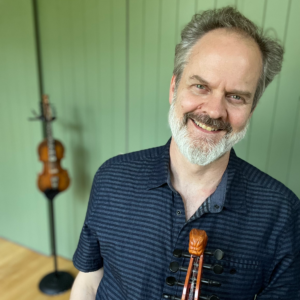Ask Tanyaradzwa Tawengwa (’14) to name a role she’d like to serve and the response comes easily: “I want to be president of the University.”
Tanyaradzwa is like so many Princetonians – ambitious, fiercely intelligent, a true multi-hyphenate. Yet it is her way of walking in abundance that is perhaps her most striking and admirable quality.
If you can’t tell from her title – scholar, healer, composer, singer, and Zimbabwean gwenyambira (mbira player) – Tanyaradzwa is not one to sit idly by. In the last year and a half alone, she has completed a year-long tenure as a Hodder Fellow and embarked on the three-year START Entrepreneurs program. Both have brought her back not only to Old Nassau, but to the Music Department, where she maintains an office alongside former professors she now calls colleagues and friends and passes the days refining her practice as a Cultural Protector of Zimbabwean ChiVanhu culture.
In a way, she is picking up right where she left off – she was a boon to the Music Department during her undergraduate tenure nearly a decade ago, and today she continues to enrich our community through her myriad talents, her passion for teaching, and her remarkable generosity.
Growing up in Harare, Zimbabwe as the granddaughter of entrepreneur George Chirume Tawengwa – founder of the Mushandirapamwe Hotel, the first Black-owned hotel in Highfield, Harare (formerly Salisbury) – Tanyaradzwa was inspired by a spirit of entrepreneurship and collaboration from a young age. She was also surrounded by music; her maternal great-grandfather had been a choral conductor, and both sides of her family enjoyed music-making.

As an undergraduate, she drew from the wellspring of university and Music Department resources to bridge the space between Zimbabwe and Princeton. She founded the African acapella group Umqombothi to celebrate the music of Africa. When she was awarded the Alex Adam ‘07 Award, she used it to enroll at the Zimbabwe College of Music and study mbira, an instrument integral to Zimbabwe’s cultural and ancestral heritage. As a concentrator in music, with certificates in musical performance and French, she composed her senior thesis choral drama, “The Dawn of the Rooster,” on themes of the Zimbabwean liberation struggle.
“Ever since I was a student at Princeton, I’ve felt like I could voice my ideas and try things.”
When Tanyaradzwa speaks about her culture, it is with both great love and sadness. For 600 years her people were subjected to a colonial war that threatened to erase her ChiVanhu culture. Her own education, like that of most “Born-Free” Zimbabweans (i.e. Zimbabweans born after Zimbabwe’s independence in 1980), was a Eurocentric one; it othered indigenous epistemologies and intellectually untethered Zimbabweans from their ancestral roots.
“Cultural erasure is real. Language death is real. Memory death is real.”
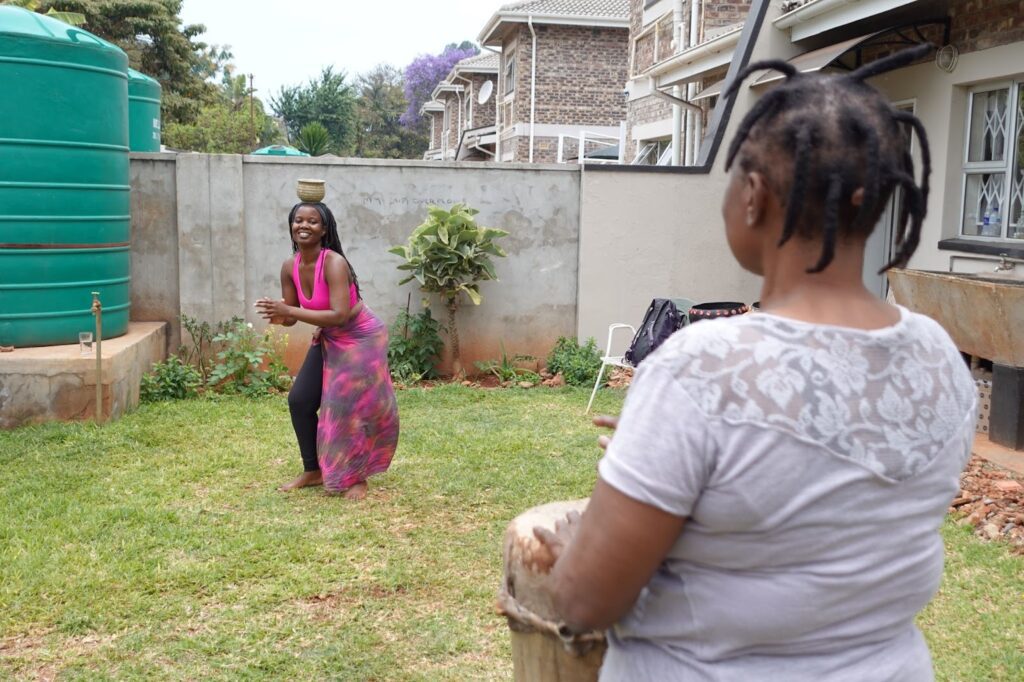
The first half of Tanyaradzwa’s Hodder Fellowship, begun in September 2021, was devoted to healing those colonial wounds. She returned to her homeland with the goal of re-embodying ancestral knowledge and developing an interdisciplinary musical work grounded in the stories and traditions of her people. She held an apprenticeship with Kelvin Chale, a certified herbalist and Mashonaland East secretary of the National Traditional Healers Association – an organization dedicated to keeping indigenous healing practices alive. During this apprenticeship, she lived between Harare and her ancestral home in Marondera and learned the healing modalities, songs, and dances of her ancestors, immersed herself in centuries-old traditions and listened to stories everywhere she went.
“I come from a long line of people, and there are a lot of places that have made me, the Tanyaradzwa you know today.”
Even when the Omicron travel ban cut her trip short, she continued learning, eventually inviting three collaborators from Zimbabwe to campus. Her months of research culminated in a song cycle entitled Mwedzi (“moon” or “menstrual cycle”), a musical narrative of her own rite of passage into womanhood, grounded in her heritage and complemented by visuals of her ancestral home.
There is an impressive sense of self to Tanyaradzwa, a virtue that she speaks about often and intentionally. “Too many people,” she shakes her head, “dim their light.” In ChiVanhu, she explained, the words for “life” and “to shine” share the same root: Hupenyu means “life” and Kupenya means “to shine”. Tanyaradzwa is a fierce protector of her own light, but she is also a champion of the light in all whom she meets.
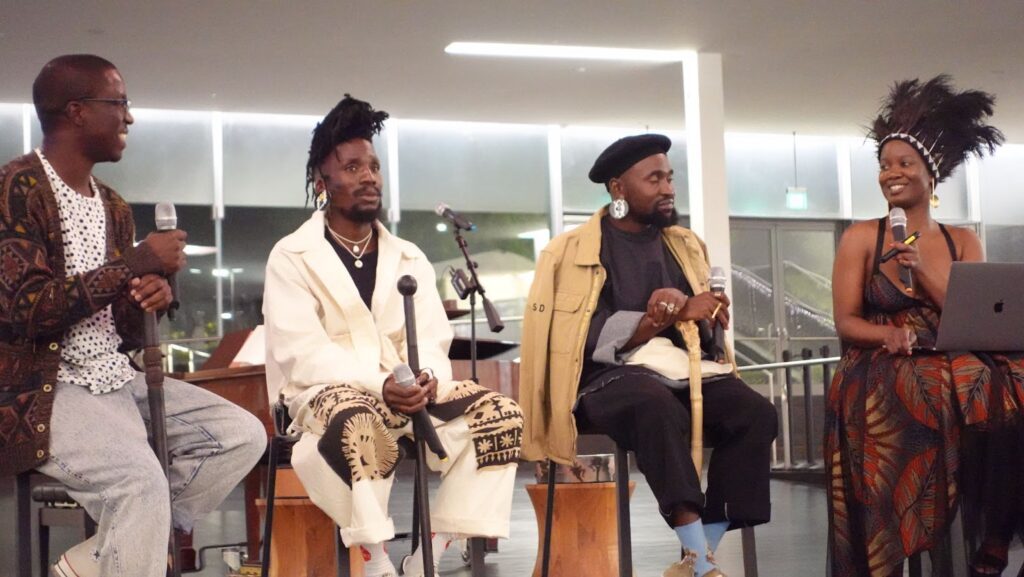
In March 2020, before the Hodder Fellowship was even a glimmer in her eye, Tanyaradzwa found herself stranded in St. Louis. She was two weeks into rehearsals for “Dreaming Zenzile,” a musical about the life of South African singer-activist Miriam Makeba, at the Repertory Theatre of St. Louis, when the COVID shutdown ground the production to a halt. Another rushed leave-taking. She packed her bags and moved to Philadelphia to live with her sister, her sister’s husband, and her niece and nephew.
Over the ensuing months, she found joy in teaching her niece and nephew piano and mbira, helping them with their homework, and imbuing their absorbent minds with knowledge from the ChiVanhu canon. This is where Zimbabwe KIDS Summer Camp, the seedling for her START fellowship began. Well, really, it had begun even earlier, back in 2014 in the Woolworth recording studio when Tanyaradzwa put together an EP of ChiVanhu nursery rhymes as a first birthday present for her niece with the help of then-doctoral candidate Elliot Cole. She then became kind of famous.
“There is such a dearth of cultural resources – there’s almost nowhere [one] can go to find language resources for kids, like cartoons and entertainment.”
Bolstered by the response of her extended community, Tanyaradzwa began thinking about how to create a platform for indigenous cultural resources, but the logistics felt insurmountable. Then, COVID. Virtual learning exploded, and Tanyaradzwa launched the inaugural session of Zimbabwe KIDS Summer Camp, a virtual space for kids growing up outside Zimbabwe’s borders to learn about their heritage.

Now in her first year of START, Tanyaradzwa is refining her idea for a digital platform where “cultural freedom fighters” like herself can share indigenous knowledge with kids and adults alike. She plans to use the platform to feed a thriving Zimbabwean creative industry, too. In the same way that she paid Zimbabwean instructors for her KIDS camp a fee that would be competitive in the U.S. but transformational to a Zimbabwe-based artist, she plans to continue inviting collaborators into spaces where their light can shine.
“It’s wonderful when you meet people who believe in you. What’s even better is when you meet people – Dan Trueman, Gabriel Crouch, Paul Lansky [in the Music Department], and Florent Masse [in the French Department] – who see visions of yourself that are greater than the ones you even hope for yourself, people who champion your light.”
Back in the Music Department after 8 years, Tanyaradzwa splits her time between her office, Glee Club rehearsals (she’s a frequent collaborator with the group), meetings with her START peers and advisors, and her home on “the Street” (Prospect Avenue). She’s working with her faculty mentor Gabriel Crouch on her START project. (It’s a full circle moment — one of many these days; back in 2013-14, she was President of the Princeton Glee Club and worked closely alongside Gabriel, who directs the choir). She speaks proudly of the community she’s returned to — a community she never really left.
“It’s really wonderful to see the open-mindedness today about what the [Music Department] curriculum could look like to make room for other music learning cultures.”
Ask any of the professors who knew her during her undergraduate years and they’ll attest that the Tanyaradzwa of today isn’t all that different from the young Tiger they knew years ago. There’s always been a sense of intentionality, purpose, and warmth to her aura, but now her focus is like a laser beam.
“The social awakening [during COVID] brought out a kind of power that I always knew was there but probably needed a certain set of conditions. That was a big part of [the past few years]: finding my Voice with a capital V and nurturing [projects] that started off small but then became these big ripples.”
She chased after that Voice – and continues chasing – as the founder of Zimbabwe KIDS Camp and creative-In-residence of Castle Of Our Skins, in her compositional work on stages from the virtual sphere to Brooklyn’s National Sawdust, and, of course, as a fixture of the Music Department community.
“[During COVID] I didn’t know where work was going to come from. But I was busy! I was booked and blessed.”
Today, Tanyaradzwa feels like all is falling into place; she’s back at Princeton, nurturing her light, standing in her power, and poised to receive all that is yet to come.
“Zimbabwe is where the heart is, but if I had to choose another place after my own home of birth, it really would be Princeton”
In Other News

Gavin Steingo Named 2024-25 Getty Research Institute Scholar
Jun 28, 2024
The Department of Music is excited to announce that Gavin Steingo, Professor of Music and Director of Undergraduate Studies, received a prestigious year-long fellowship at the Getty Research Institute (GRI) in …
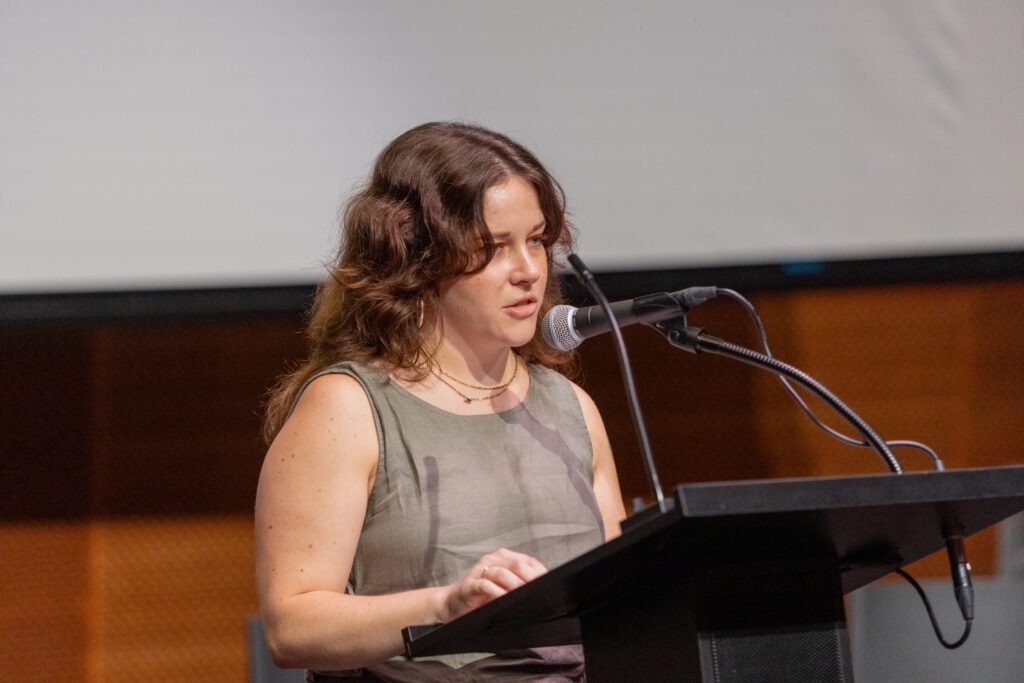
2024 Class Day remarks by key note speaker, Molly Bolten ’14
Jun 10, 2024
By Molly Bolten ’14 Good afternoon Princeton Music graduates! Please excuse my hoarse voice—I’ve been shouting over very loud music for the last three days. As Professor Snyder told you, …
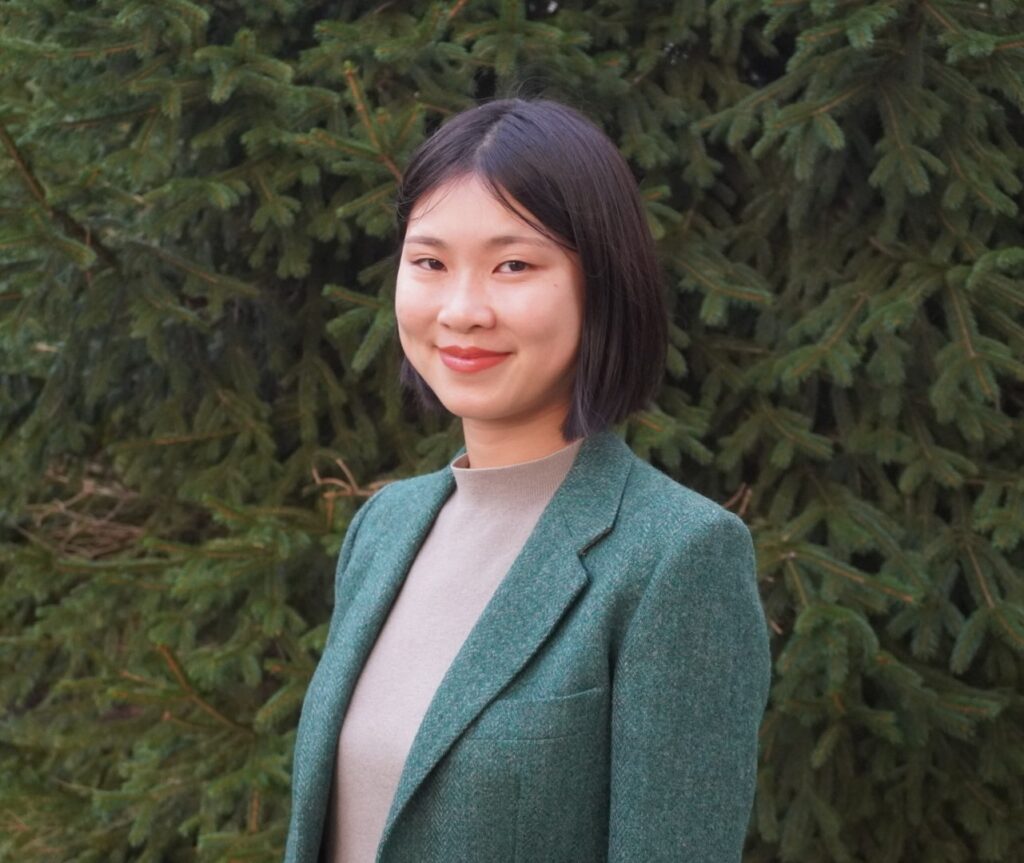
Anna Yu Wang Named 2024 Luce/ACLS Early Career Fellow in China Studies
May 24, 2024
The Music Department at Princeton is proud to announce that Anna Yu Wang has been awarded a 2024 Luce/ACLS Early Career Fellowship in China Studies.


